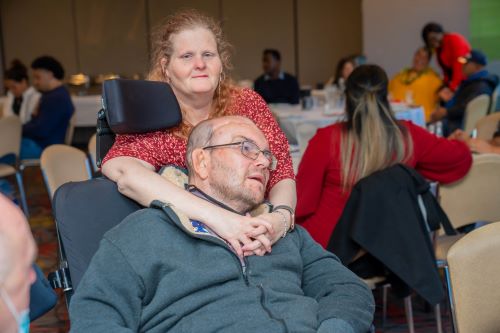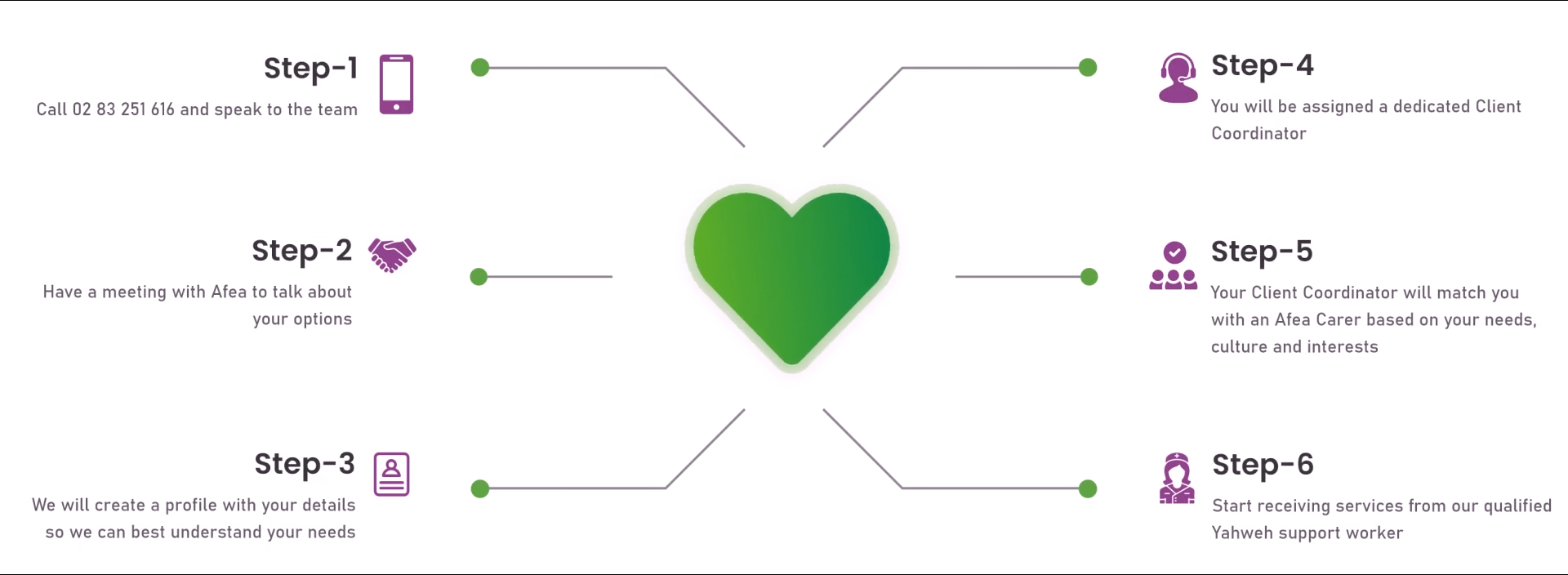SWITCH TO YAHWEH CARE
Providing care and holistic approach to NDIS participants aiming to create opportunities for you to live your best life.
Contact UsThere is a striking correlation between NDIS and mental health. That’s because the National Disability Insurance Scheme offers support to those people with disability who are struggling mentally. As long as their mental illness is significantly impacting their daily lives, they are qualified for NDIS support.
However, it is important to note that mental health conditions are broad. NDIS support has limitations and can only accommodate certain situations. Of course, this is when the psychological problem causes permanent issues. These may include difficulty in self-care, relationship problems, or inability to participate in the community.
Accordingly, the NDIS helps individuals access a range of psychosocial supports tailored to their choices and preferences. These include treatment management, counseling, therapy, daily living assistance, and social inclusion programs. These aim to promote greater independence and improve the NDIS participants’ overall well-being.

NDIS Mental Health Support ensures that people with mental illness who are eligible for the NDIS receive the necessary care. It aims to help in managing disability so people can have fulfilling lives. It also ensures that mentally ill individuals have access to the resources and support they need to have a better quality of life.
Personalized NDIS Plans: Each participant can get a tailored NDIS plan based on their specific needs, life goals, and preferences. Following this, the plan focuses on ensuring that people with disabilities receive the services relevant to their current state.
Daily Living Assistance: NDIS participants can access support care for daily tasks. These include personal care, assistance with household chores, transportation, and home modifications. Daily living assistance aims to help individuals with disabilities live more independently.
Specialist Disability Accommodation: A few NDIS participants may require intensive care and support. Thus, Specialist Disability Accommodation may fit their needs. This helps with participants’ accommodation comfort and aims to support the individual’s health, well-being, and independence while living in their home or facility.
Therapies and Health Services: The NDIS provides admission to certain services, such as therapy, counseling, and medication management. These include psychotherapy, occupational therapy, speech therapy, and other health-related services. This ensures that participants can rely on NDSI for medical expertise.
Community Participation: The NDIS supports programs focusing on social inclusion for people with disabilities. These programs encourage participants to connect with the community, promoting social and economic participation through social gatherings or events and open recreational activities.
Employment Support: The NDIS helps participants work and progress in sustainable employment. It provides NDIS funds for education, skills training, and workplace adjustments. The NDIS also caters to ongoing support to assist participants in securing and maintaining employment.
However, before an NDIS participant can benefit from an NDIS plan, there has to be a consideration. Since mental health or psychosocial disability poses a broad discussion, disabled individuals must address the challenges.

Mental health conditions can sometimes be episodic. Thus, the support needs may change over time. The NDIS plan may need review and adjustments to handle these discrepancies. It is vital to note that there is no specific approach to mental illness. And the only way to address it is by going through a series of therapy or even medication.
People applying for NDIS support may face challenges in gathering sufficient evidence. That’s because mental illnesses are often subjective and vary in severity. It’s crucial to have comprehensive reports from mental health professionals. These include medical diagnosis, illness tests, and overall disability assessment.
Some people living with disabilities may struggle with the complexity of the NDIS process. Fortunately, support coordinators can be key in helping them understand their unique needs. NDIS services and programs allow them to receive care while navigating the support system.
A thorough NDIS plan that addresses every facet of a patient’s health. It encourages long-term health improvement and facilitates a full psychological and personal recovery.
Overview of the several types of mental health assistance through NDIS:
Including NDIS participants in healthcare decisions and motivating them to take charge of their health is essential. Furthermore, those are key components of fostering patient empowerment and engagement.
This can be accomplished by educating NDIS participants about their current state. This will allow them to know what they can do to address their needs. Through NDIS, they can keep lines of communication open. This will give them the information and resources they need to make well-informed treatment decisions. It also allows them to choose their companions in case of emergency or unexpected incidents.
The NDIS also supports social inclusion and community involvement. It allows participants to build and maintain relationships with family, colleagues, friends, and other individuals. NDIS support workers and service providers often facilitate these connections, ensuring that participants are socially engaged and not isolated.
The NDIS provides funding for empowerment and involvement programs. This fund supports participants with similar disability experiences so they can connect, share, and build attachments. These group activities create a sense of belonging and reduce feelings of loneliness, which is common for disabled people.
NDIS participants require overall psychological and emotional health. Thus, focusing on specific NDIS programs allows them to approach their situation more carefully. These include counseling, stress-reduction strategies, and managing any depressive or anxiety symptoms.
Working with Healthcare professionals is crucial in creating an effective NDIS plan. Their process encourages people with disabilities to be independent as they use team-based approaches.
Medical professionals contribute to helping people with disabilities understand their support needs. They provide significant indications of eligibility to ensure that the NDIS plan is comprehensive and tailored to specific mental challenges. They provide clinical expertise in professionally assessing mental health conditions’ severity and daily impact.
Some of these situations include their ability to manage personal care, maintain relationships, work, and engage in community activities. Therefore, these are all factors signifying the level of impairment that requires assistance.

The NDIS recognizes a mental health condition as a legitimate disability, especially when it leads to significant functional impairments, including in personal care, work, education, and social activities. Through personalized funding and NDIS-tailored support plans, participants are given a chance to have a better quality of life.
However, it is vital to note that accessing mental health support through the NDIS can present challenges. Navigating and understanding the mental health system may be complicated and overwhelming. It would be best to seek advice on how NDIS plays a critical role in breaking down challenges and barriers.
Thankfully, Yahweh Care advocates for the right NDIS support. They always ensure that individuals receive the right services they need. Next, their team of dedicated professionals can assist people with disability and offer them assistance throughout the process of getting a plan.
You can ask for their quotations and learn more about the NDIS plans for mental health.
Providing care and holistic approach to NDIS participants aiming to create opportunities for you to live your best life.
Contact Us


